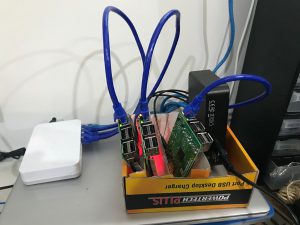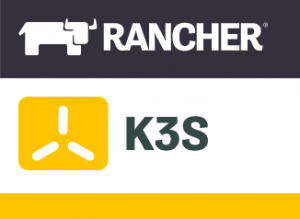Blog
You can become a superhero of automation and development by learning and practicing. This is our blog from our learnings and practice.
We are consultants and trainers in Cloud Foundry, devops automation and continous delivery. We have the best jobs in the world helping you have the best job in the world.

Genesis is an awesome deployment framework for deploying systems with BOSH to any infrastructure cloud. It has a whole catalog of open source production ready kits which make it super easy to deploy, scale, and upgrade systems such as Cloud Foundry Application Runtime (PaaS), Vault (Secrets), Concourse CI, SHIELD (backup/restore), and Minio (Object Store). Genesis

Nearly every Docker image you’ve ever run on Kubernetes will not work on your Homelab Raspberry Pi cluster. Why? What do we need to do? This article introduces the “docker buildx” plugin to make it easy to produce mult-arch Docker images. I’ve started a new home lab of Raspberry Pis (and soon to include some

Photo by Braden Collum on Unsplash Minikube is a nifty tool to start playing with Kubernetes without incurring any additional costs since you run it on your own laptop. It runs as a virtual machine locally on VirtualBox or VMware Fusion and installs the kubectl CLI which you’ll need to interact with the clusters. The

Photo by Victor Muñoz on Unsplash App Autoscaler is an add-on to Cloud Foundry to automatically scale the number of application instances based on CPU, memory, throughput, response time, and several other metrics. You can even add your own custom metrics as of v3.0.0. You decide which metrics you want to scale your app up

Tutorial based on https://blog.alexellis.io/create-a-3-node-k3s-cluster-with-k3sup-digitalocean/ and converted for Google Cloud gcloud commands. At the end is a curl | bash -s up all-in-one command if you want to do this again in future. $ gcloud compute instances create k3s-1 \ –machine-type n1-standard-1 \ –tags k3s,k3s-master Created [https://www.googleapis.com/…/zones/us-west1-a/instances/k3s-1]. $ gcloud compute instances create k3s-2 k3s-3 \ –machine-type

Photo by Christopher Paul High on Unsplash Below is an example of using LDAP to back UAA for the Cloud Foundry Kit in Genesis. Comments have been left on each of the params to note where these values come from or to simply set-and-forget the values: # UAA LDAP configurationparams: ldap_spring_profiles: ldap ldap_ssl_certificate: (( vault

Photo by Marko Horvat on Unsplash What we were doing Recently, we were helping a client to integrate logging into Concourse. Deploying Concourse with the concourse-bosh-deployment is fairly easy with a base concourse.yml and features added with various ops files. One of the available ops files adds LDAP authentication which the client wanted. We wound

In the previous blog posts we introduced MoltenCore and showed you how to deploy MoltenCore on Packet bare-metal cloud. In this blog post I will walk you through the steps needed to deploy Cloud Foundry on your freshly deployed MoltenCore Cluster. Since MoltenCore uses BOSH with the docker-bosh-cpi for resources isolation, a Cloud Foundry running

MoltenCore allows running containerized container platforms on bare-metal in a BOSH native way, using a highly available scale out architecture. The main repo can be found on GitHub. In this blog post, we will walk you through the steps needed to deploy a MoltenCore cluster on Packet. Clone the project The packet-molten-core repo contains the